Filter by
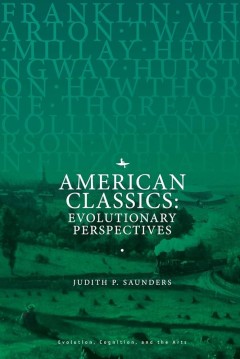
American Classics : Evolutionary Perspectives
This collection of essays offers evolutionary psychological analysis of selected works from the American literary tradition. Application of evolutionary theory to writing by Ben Franklin, Nathaniel Hawthorne, Mark Twain, Walt Whitman, Edith Wharton, F. Scot Fitzgerald, Zora Neal Hurston, and others creates an interdisciplinary framework for examining key textual features: plot, theme, tone, set…
- Edition
- -
- ISBN/ISSN
- 9781618117656
- Collation
- -
- Series Title
- Evolution, Cognition, and the Arts
- Call Number
- 800 SAU a
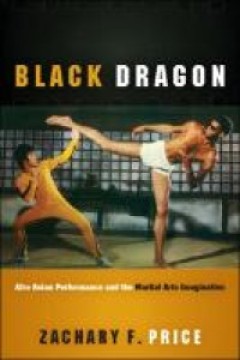
Black Dragon : Afro Asian Performance and the Martial Arts Imagination
In Black Dragon, Zachary F. Price illuminates martial arts as a site of knowledge exchange between Black, Asian, and Asian American people and cultures to offer new insights into the relationships among these groups. Drawing on case studies that include Kareem Abdul-Jabbar’s appearance in Bruce Lee’s film Game of Death, Ron Van Clief and the Black Panther Party for Self-Defense, the Wu-Tang…
- Edition
- -
- ISBN/ISSN
- 9780814214602
- Collation
- 240 halaman
- Series Title
- Black Performance and Cultural Criticism
- Call Number
- 700 PRI b
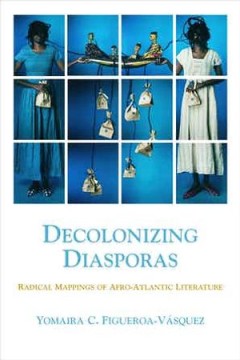
Decolonizing Diasporas : Radical Mappings of Afro-Atlantic Literature
Decolonizing Diasporas proposes a new way to read the literary and cultural productions of the Afro-Atlantic. Mapping literature from Spanish-speaking Sub-Saharan African and Afro-Latinx Caribbean diasporas, Figueroa-Vásquez argues that the works of diasporic writers and artists offer ways of imagining new worldviews which dismantle the logics of colonial modernity. Utilizing women of color fe…
- Edition
- -
- ISBN/ISSN
- 9780810142435
- Collation
- 304 halaman
- Series Title
- -
- Call Number
- 800 FIG d
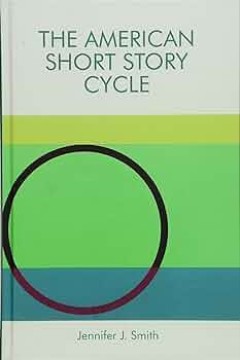
The American Short Story Cycle
The American Short Story Cycle shows the roots of modernism and postmodernism winds through the short story cycle. Reviewers ranging from the The New York Times to Amazon do not know what to call books like Jennifer Egan's A Visit from the Goon Squad or Jhumpa Lahiri's Unaccustomed Earth. Why do such popular and acclaimed books spark debates about what they are and how they should be read? The …
- Edition
- -
- ISBN/ISSN
- 9781474423946
- Collation
- 208 halaman
- Series Title
- -
- Call Number
- 800 SMI a
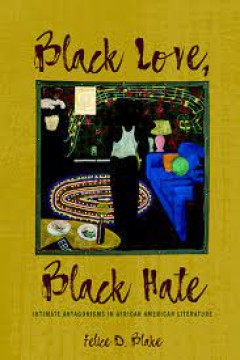
Black Love, Black Hate
Felice D. Blake's Black Love, Black Hate: Intimate Antagonisms in African American Literature highlights the pervasive representations of intraracial deceptions, cruelties, and contempt in Black literature. Literary criticism has tended to focus on Black solidarity and the ways that a racially linked fate has compelled Black people to counter notions of Black inferiority with unified notions of…
- Edition
- -
- ISBN/ISSN
- 9780814213865
- Collation
- -
- Series Title
- -
- Call Number
- 800 BLA b
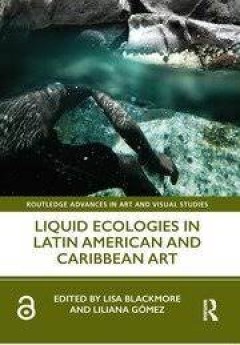
Liquid Ecologies in Latin American and Caribbean Art
This interdisciplinary book brings into dialogue research on how different fluids and bodies of water are mobilised as liquid ecologies in the arts in Latin America and the Caribbean. Examining the visual arts, including multimedia installations, performance, photography and film, the chapters place diverse fluids and systems of flow in art historical, ecocritical and cultural analytical contex…
- Edition
- -
- ISBN/ISSN
- 9780367198985
- Collation
- -
- Series Title
- -
- Call Number
- -
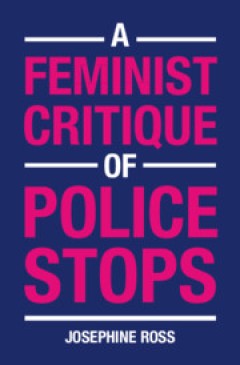
A Feminist Critique of Police Stops
A Feminist Critique of Police Stops examines the parallels between stop-and-frisk policing and sexual harassment. An expert whose writing, teaching and community outreach centers on the Constitution's limits on police power, Howard Law Professor Josephine Ross, argues that our constitutional rights are a mirage. In reality, we can't say no when police seek to question or search us. Building on …
- Edition
- -
- ISBN/ISSN
- 9781108697477
- Collation
- -
- Series Title
- -
- Call Number
- -
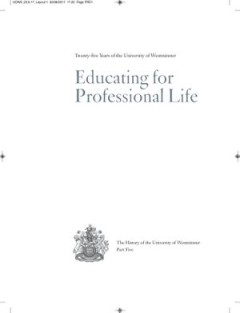
Educating for Professional Life
"The story of the University of Westminster is the fifth volume in a series of titles exploring the University's long and diverse history. This book celebrates the twenty-fifth anniversary of the institution gaining university status, the right to award its own degrees and to participate in publicly funded research. Drawing on extensive research conducted in the University of Westminster Archiv…
- Edition
- -
- ISBN/ISSN
- 9781911534983
- Collation
- -
- Series Title
- -
- Call Number
- 370 PEN e
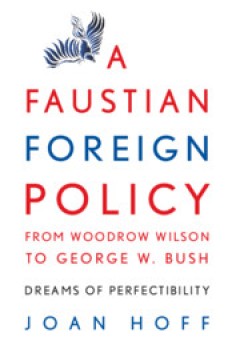
A Faustian Foreign Policy from Woodrow Wilson to George W. Bush
A Faustian Foreign Policy from Woodrow Wilson to George W. Bush critiques U.S. foreign policy during this period by showing how moralistic diplomacy has increasingly assumed Faustian overtones, especially during the Cold War and following September 11. The ideological components of American diplomacy, originating in the late 18th and 19th centuries, evolved through the 20th century as U.S. econ…
- Edition
- -
- ISBN/ISSN
- 9780511511592
- Collation
- -
- Series Title
- -
- Call Number
- -
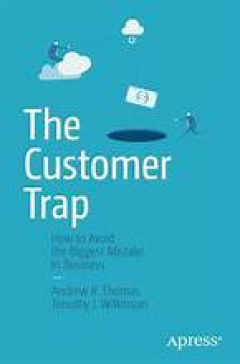
The Customer Trap
American business is dysfunctional. Companies of all sizes follow the mistaken belief that their products and services are best sold through organizations with pervasive market reach. Far too many business leaders fail to realize - until it is too late - that the relentless pursuit of volume at all cost is not the key to long-term profits and success. In 2010, Andrew R. Thomas and Timothy J.…
- Edition
- 1
- ISBN/ISSN
- 978-1484203866
- Collation
- 180 pages
- Series Title
- -
- Call Number
- -
 Computer Science, Information & General Works
Computer Science, Information & General Works  Philosophy & Psychology
Philosophy & Psychology  Religion
Religion  Social Sciences
Social Sciences  Language
Language  Pure Science
Pure Science  Applied Sciences
Applied Sciences  Art & Recreation
Art & Recreation  Literature
Literature  History & Geography
History & Geography